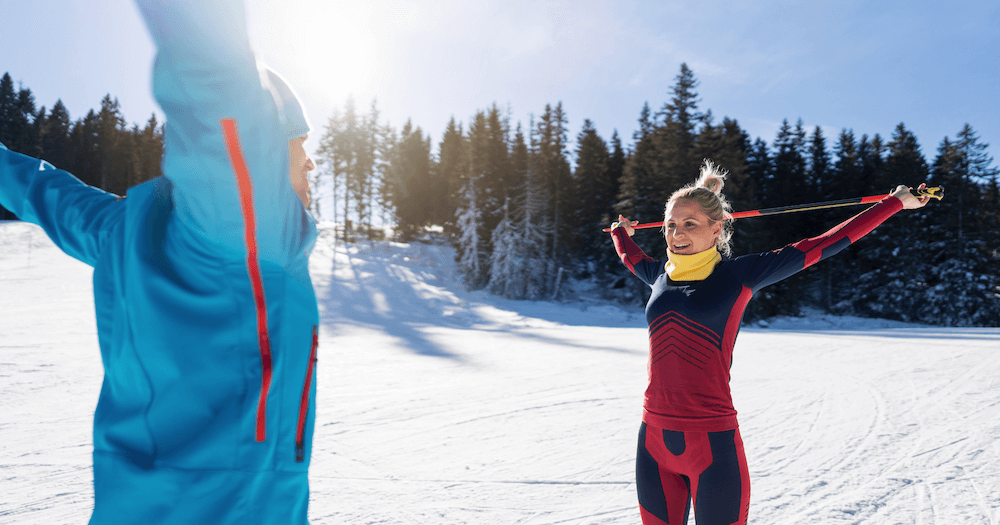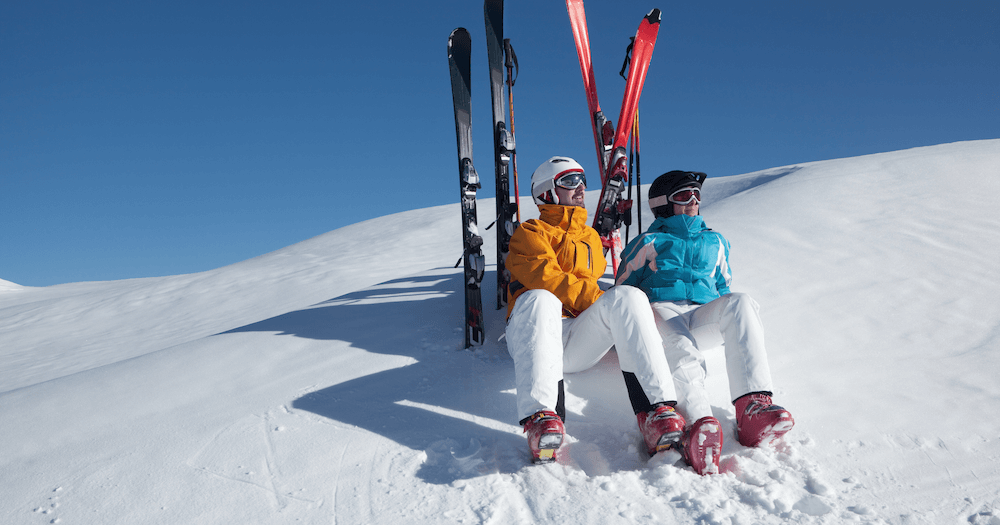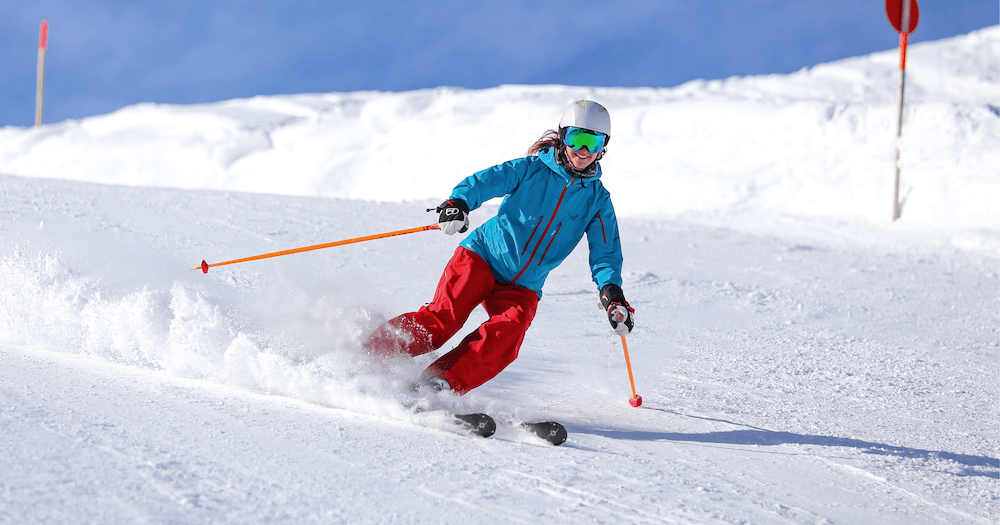Skiing and snowboarding are great ways to stay fit and get outside during the colder months. Whether you’re new to the sport or are an experienced skier, there are proactive steps you can take to stay safe on the slopes. It can be easy to get swept up in the excitement while out there but try to remember these tips to enjoy a long and injury-free season.
1) Wear the Right Equipment
We mean this in terms of your helmet, skis, boots, and poles. Having properly fitted equipment while skiing is the first and easiest step to injury prevention. We recommend checking all of your equipment well before your trip so that you can troubleshoot any issues in advance.
Let’s start with your helmet – and yes, they are a requirement for a reason! Even the most qualified athletes fall unexpectedly and wearing a helmet is one of the best ways to prevent head injuries. A proper helmet will feel snug but not overly tight. Shake your head back and forth to make sure there is no shifting or sliding. We also recommend you know the signs of a concussion so that you can seek medical attention right away if either yourself or someone you know falls while skiing.
Make sure your boots, skis, and poles are suitable for your ability. A proper fit will give you more confidence and control so make sure everything is the right length for your height. It’s always a good idea to go for a tune-up at the beginning of each new season or if it’s been a while since you’ve last skied. Check your edges and bindings so you can maintain control over any icy sections. Having your ski bindings adjusted correctly is also crucial for helping your skis come off at the right time when you fall so that you don’t twist your knees.
2) Warm-Up and Cool-Down
Any sort of physical activity should be accompanied by a warm-up and cool-down to help protect the body. Since skiing is a balance sport, our LiveWell physiotherapists recommend dynamic stretching to wake up your muscles – especially if you’ve driven several hours to get to your location! At the very least, sneak in some squats and single-leg balancing when you’re waiting in line for your pass or at lift lines.
While most of us know about the importance of a good warm-up, we find that people often forget to take care of their bodies post-ski. It can be tempting to just head straight for the chalet after a full day of skiing but don’t forget to stretch first. Do some simple movements to let your body relax and prevent your muscles from tightening up. You’ll thank yourself when you wake up the next day!

3) Try Skiing Lessons
Lessons aren’t just for beginners! No matter what level you’re at with your skiing, taking a lesson or two will help you sharpen your techniques and prevent bad habits that could lead to injuries. Even some of the best skiers in the world will take lessons to improve in terms of skill and safety. Checking up on your form will help you move more efficiently and there is always something new to learn!
If you are a new skier, taking lessons is essential for your enjoyment and safety. One of the most important things an instructor will teach you is how to fall correctly. Let’s be frank: you will fall and you will probably fall a lot, so it pays to know how to do it properly. To avoid further injury, a ski instructor can teach you the basics and walk you through some dos and don’ts. Lessons are also important for learning the skier’s code of conduct which includes some common-sense rules like giving downhillers the right of way, looking up before crossing a trail, skiing in control to stop or dodge others, and avoiding others’ blind spots, plus how to safely get on and off the chairlift.
4) Start Slow and Listen to Your Body
For your first few days of each season, start with only a couple of hours and slowly work your way up to full days. We know it can be tempting to go all out, especially after a summer break, but you need to ease your body and muscles back into the sport. The same goes for any break within the season and even on a day-to-day basis. You can start with some easy runs and increase the difficulty throughout the day to practice your technique and warm up your muscles.
Be honest with yourself and your body. Since it’s safer to ski with a friend, be open with them about your ability and don’t try to show off. If you’re not comfortable or confident with certain levels of terrain, slopes, or colour codes, speak up. We also recommend you listen to what your body is telling you. Injuries often happen because of muscle fatigue so if you feel like you’re getting tired towards the end of your day, don’t push through. Going for the infamous last run may help you squeeze some more skiing into your day, but it is also likely to cause pain if you push it too far.

5) Stay Hydrated and Rest
Just like you would when working out in hot weather, you want to stay on top of your hydration even in colder weather. You may not get as thirsty but you are still being very active and losing a lot of fluids as you sweat. Take frequent water breaks to avoid dehydration on the slopes. Taking breaks, in general, is also a good idea in terms of how many ski trips you take in a season and when you’re on longer ski trips. Having time off will give your body a chance to recharge and refuel so you can actually be better the next time you go out. Weak or tired muscles are more susceptible to injury so cramming as much skiing in as possible may cut your season short in the end.
—
We hope this blog provided you with some tips for a safe, enjoyable, and injury-free ski trip! Reach out to our team if you want more guidance on how to reduce your risk of injury while being physically active. Whether you’re experiencing pain or just want to feel healthier, our team can help bring your physical and mental health to its full potential. Contact us to book an appointment at our Lancaster, Waterloo, Driftwood, or Baden locations. We look forward to working with you!
Want more lifestyle advice on how to improve your health and wellness? Contact our LiveWell Health and Physiotherapy Kitchener (Lancaster and Driftwood), Waterloo, or Baden teams for more information and to book your next appointment. You can also reach out to us by email or social media, and one of our team members will be more than happy to answer any of your questions! All of our practitioners have tips and expert guidance to help improve your health and overall quality of your life.

